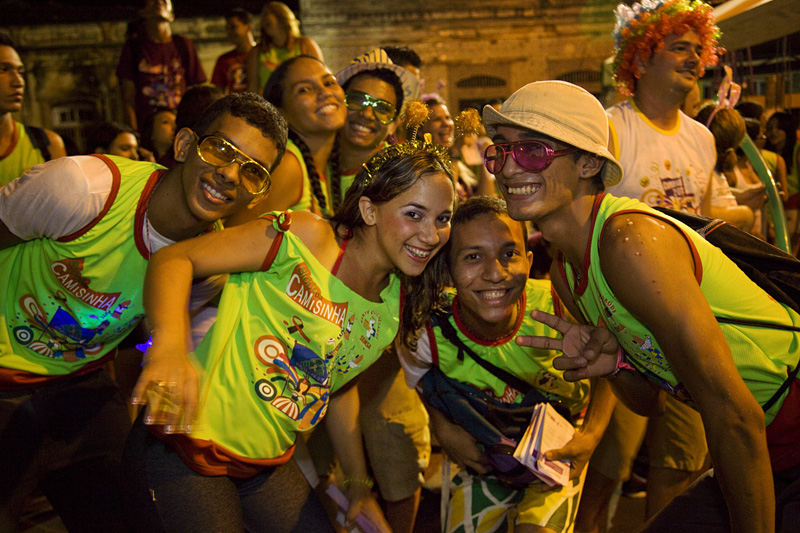Bloggers say Bollocks to Inequality

As you might have seen in Third Sector, we’ve been fortunate to be working on a fantastic project over the last couple of months with ActionAid’s youth arm Bollocks to poverty. As one of the bloggers involved, Marsha at SoulCulture, explains:
To mark the 100th anniversary of International Women’s Day, ActionAid UK’s youth engagement team flew a select number of UK bloggers – SoulCulture, BitchBuzz & Pinboard Blog – to Brazil as part of their ‘Bollocks to Inequality’ initiative, whilst launching a new year-long partnership with local organisations focusing on women’s rights.
Through the bloggers’ first hand experiences being shared within their communities, the project aims to drive awareness and discussion of the issues surrounding gender equality amongst a group of people that may not have considered them in depth before, help them realise the value of the work that ActionAid is doing, and show how they can help make a positive difference in many women’s lives.
The team flew out just over a week ago heading into a whirlwind eight days trip, first stopping off in Rio and visiting an ActionAid project in Maré favella. Shan Phearon, writing for PinBoard:
you can feel there is something organic that dwells in Maré. An undeniable spirit in the community that I was told is down to the fact a fair proportion of residents are upright against the odds and work hard to keep their families alive and fed. They just get on, trying to lead ‘ordinary’ lives against a backdrop of violence, gunfire & destitution. One can’t also help but notice there is some valued structure: small shops serving locals, some small businesses and most promisingly the presence of an Action Aid partner organization set up by the locals themselves to improve education, public safety, development opportunities and culture called REDES.
It was unfortunate to hear that females played generally subservient roles in the favela communities. However I learnt REDES is gradually working to invert this perception when I met with young women on their staff that had graduated from university. They make up a resistance echoed in the Maré and now pilot a younger generation by running workshops, activities & classes to help them reach the same plateau of higher education or at the very least higher mindset.
Next up was a flight north and to Santarem. Helen Hector, ActionAid campaigner:
High rise hotels and full-on favelas have been replaced with sweating rainforest and the mighty churning amazon river. We are here to meet a youth group [GADA] who are pioneers in getting young people talking about their sexual rights and helping them stay safe, healthy and in control. ActionAid support the organisation that trained them up, but they are now a fully independent group, continuing to make a difference with help from the local health services.
Which certainly seems to be the case. Hannah Mudge, writing for BitchBuzz:
as I sat watching the GADA group perform a fantastic presentation to a group of younger children at a church-run club about sexual violence and gender roles. Here was an age appropriate presentation. It had the children engaged. And they were given resources which they could take home to show their parents.
It’s the sort of thing that would have many a right-thinking Middle Englander apoplectic with rage, but in Santarém, the reaction is overwhelmingly positive and to be honest, it really hammered it home to me why we fight for equality and that when we do, it works.
It was then back down to Rio in time for the culmination of Carnival Week and a brief breather before hoping on a flight back to London. Marsha at SoulCulture reflected:
I’ll wax more about my thoughts and experiences on the trip in greater detail on my return to London later this week but following today’s theme: my main reflections on International Women’s Day are of freedom. Which has a lot to do with knowledge and the empowerment, options and free choice it can bring.
The freedom to decide what to do with our bodies; I was shocked to learn the first legal abortion in Santarem was only performed in 2009, and it took a 12-year old girl to be raped for that to happen – even then, the Brazilian public were never informed for fear of uproar.
The conversations will continue over the next few weeks once they’ve edited down video captured throughout the trip, which will be worth checking back for.